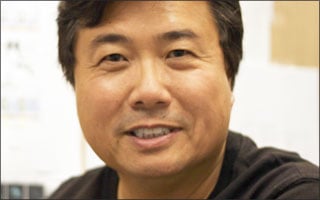The passing of Dr. David T. Yue

A letter from Landon King, Executive Vice Dean,
Johns Hopkins University School of Medicine, and Elliot McVeigh, Massey Professor and Director, Department of Biomedical Engineering, Johns Hopkins University School of Medicine
Dear friends and colleagues:
The Johns Hopkins University School of Medicine lost a beloved friend, colleague and teacher on Tuesday, Dec. 23. David Yue, professor of biomedical engineering and neuroscience and co-director of the Ph.D. program in biomedical engineering, died suddenly from cardiac arrest.
Our sadness at David’s death is mixed with profound gratitude for his many contributions to Johns Hopkins and to the field of biomedical engineering. An acclaimed biophysicist, biomedical engineer and molecular neuro-/cardiac physiologist, David was recognized as a world leader in understanding calcium signaling in excitable cells, such as myocardial cells and neurons. He joined the Department of Biomedical Engineering in 1988, and his distinguished career at Johns Hopkins focused on discovering the underlying mysteries of electrical and calcium signals, the “molecular languages” within neurons and cardiac myocytes.
At the time of his death, David and his colleagues in the Calcium Signals Laboratory were pushing the frontiers of voltage and Ca2+ signaling research by combining chemical biology, FRET imaging of genetically encoded optical sensors, high-resolution electrophysiology and computational biology.
Not surprisingly, David’s work won national acclaim. Among his many honors, he received the Kenneth S. Cole Award from the Membrane Biophysics Subgroup of the Biophysical Society for his contributions to the field of cellular electrical signaling and the NIH/NHLBI MERIT award for Calmodulin/Ca channel physiology in heart, 2004-2014.
Described as a joyful teacher, David trained generations of cutting-edge scientists. He was beloved by his students and colleagues alike for his ability to present complex concepts in an understandable, compelling way. As students noted in an article about David in The JHU Gazette, “He transforms his lectures into something like a thriller movie — you don’t want to miss a second of it. His lectures are 90-minute marvels covering the history, mechanisms and applications of ion channel study. The material excites him so much that it excites all of us.” David was recognized for his teaching ability by his colleagues and students: He received the Johns Hopkins University Alumni Excellence in Teaching Award for the Whiting School of Engineering.
David also made significant contributions to the scientific literature, including many journal articles, and served on the editorial board for Biophysical Journal and as an editorial consultant for Journal of General Physiology, Journal of Physiology, Journal of Neuroscience, Science, Nature, Cell, Neuron, Nature Neuroscience, Nature Communications, and Journal of Biological Chemistry.
A 1979 graduate of Harvard University, David earned his Ph.D. in biomedical engineering and M.D. from the Johns Hopkins University in 1987. Upon receiving his combined Ph.D./M.D., David channeled his love of the process of discovery into a career in science.
The passion he brought to his work is eloquently reflected in a post David wrote some years ago titled, “The Privilege of Discovery”:
Every so often, the veil of confusing experimental results is parted, and something deep and beautiful about how biological life works is revealed. It is as if a syllable that God spoke becomes suddenly audible. The thrill of unearthing such ‘God speak’ is one of the special rewards of my profession.
Those of us fortunate enough to get to know David Yue treasured his thoughtfulness, collaborative spirit and remarkable record as an inspiring teacher and profoundly influential and innovative scientist.
Sincerely,
Landon S. King, M.D.
Executive Vice Dean
Johns Hopkins University School of Medicine
Elliot McVeigh, Ph.D.
Massey Professor and Director, Department of Biomedical Engineering
Johns Hopkins University School of Medicine
More information
In Memoriam — an article on cell.com by Ivy E. Dick, BME PhD student, and Henry M. Colecraft, Department of Physiology and Cellular Biophysics, Columbia University College of Surgeons and Physicians
